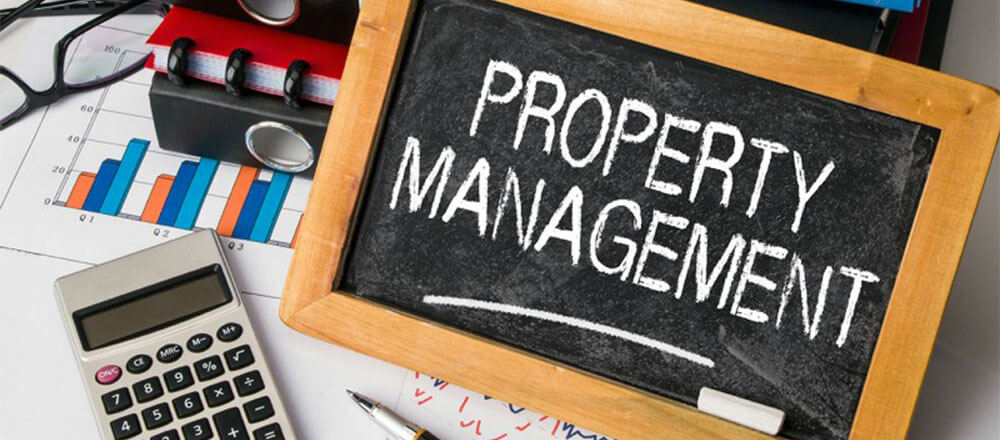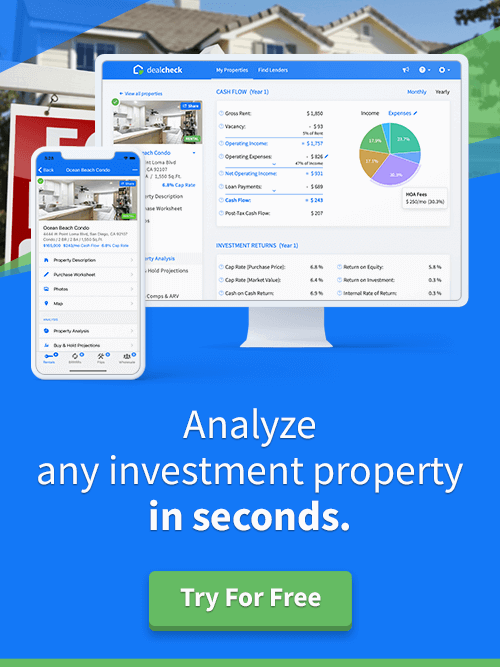As a buy & hold investor and landlord, your property manager will always be the most important member of your “team”. They will be the ones finding and screening tenants, managing maintenance and make-ready repairs, collecting rent and handling disputes.
This is especially true if you’re an out-of-state investor, in which case you’ll rely on your property management company for everything that requires on-suite presence.
Finding a great property manager takes time and some trial and error. One of the best ways to start your search is to get a referral from over local investors, instead of just searching online, for example. By going through a referral, you’ll likely eliminate a good number of companies with poor track records.
After that, call the property management company or meet them in person, and run through the following questionnaire to see if they will be a good fit:
General Questions
1. How long have you been in the property management business?
New companies without a long track record can be hit and miss. They may also lack sufficient experience to handle things like evictions or problem tenants. I prefer to work with companies who have been in business for at least 5-10 years.
2. Are you an active real estate investor in your market? If not, why not?
This is a fun question that rarely gets asked. In my opinion, property managers are in an ideal position to be investors themselves, so if they don’t own any local properties, it could be a sign that the local rental market isn’t that great.
3. What areas and types of properties do you service?
Obviously, the property management company you’re considering needs to service the areas where you own rental properties. They also need to be comfortable managing the types of properties you own or consider buying. Most property managers will work with SFRs, but fewer have experience managing multi-family or commercial buildings.
4. How many properties do you have under management? How many properties does each employee manage?
I think a good ratio is somewhere between 50 and 100 units per property manager. If a single person is responsible for over 100 properties, they are unlikely to have the time to give you much personal attention.
5. What property management software do you use?
I’m a big fan of AppFolio and most property management companies I’ve worked with use this software exclusively. You can also ask them for a sample owner’s statement and find out what types of reports they can generate through their software.
6. Can you send me referrals to 2-3 investors who use your services?
Hopefully the way you found the company you’re interviewing was via a referral from another investor. If not, definitely ask for contact information for a few of their clients. Call them up or send them an email and find out if they’re happy with the services they’ve received.
Fees
7. What is your typical monthly property management fee? Do you charge it even if the property is vacant? Do you have a discount if I bring you more than one property?
Most property managers in the US charge between 8% and 10% of collected gross rent. Some may have minimum fees even if the property is vacant. If you’re bringing more than 10 properties to them, ask if they can lower the base fee for you.
8. What are your other fees, including tenant placement, lease renewal, advertising and inspection fees?
Ask the company for their detailed fee breakdown and look over all miscellaneous fees and charges. Make sure you take them into account when calculating cash flow projections for your rental properties.
9. Would you be able to do a full walk-through inspection of the property during tenant turnover and take lots of pictures? Can you do an annual inspection upon my request with pictures? Do you charge extra for these services?
This is a must in my book, especially if the property is located out-of-state. Your property manager should have no problem sending you detailed inspection reports, which you can use to stay on top of maintenance issues and put together make-ready scopes of work.
10. Do you offer project management services? If yes, how much do you charge for this?
If you plan to do extensive rehabs or make-ready repairs, ask the property manager if they can manage the work for you. Also find out if they have in-house contractors or use outside vendors for this.

Tenants
11. How do you advertise the properties you manage?
A good property manager should be using several different channels to advertise your properties and be able to list them for you.
12. How do you screen tenants? What are some of the red flags that you look for?
Finding quality tenants for your rentals is critical and your property manager should have a solid set of criteria for screening them. Keep in mind, that you can always modify or provide additional criteria once you hire them if you’d like to be more selective.
13. What are the typical terms and duration of the lease contracts you sign with the tenants?
This will give you an idea about how the company typically structures their leases and also what’s common for the area. Ask to see a sample lease agreement as well.
14. How do you handle security deposits? Late payments?
I’ve seen some management companies hold the security deposits in their internal account and others distribute them to the owner. Both can work, but be sure you understand how they like to do things. Also ask about their standard process for collecting late payments.
15. How do you handle tenant problems? Disputes? Evictions?
A well-established property manager should have a clear process for dealing with tenant conflicts, disputes and evictions. Find out how long this process typically takes, what are the legal fees associated with it and how often this happens.
16. What specific programs you have in place to increase tenant retention and satisfaction?
This is another question that rarely gets asked. Good property management companies have at least some initiatives for increasing tenant retention and keeping them happy. Simple things like online tenant portals, the ability to text maintenance requests, or mobile app payments can go a long way.
Neighborhood Questions
I like to ask the following questions when I’m looking to buy rentals in new areas. Property managers are a great resource to learn more about a specific city, neighborhood and property, since they have the most experience with the local rental market.
17. Which areas or zip codes do you recommend for buying rental properties?
If they don’t recommend an area you have been looking at, ask them why.
18. What is the typical tenant quality for a given area? Are straight rent or Section 8 tenants more common?
It’s important to know what tenants you’ll have in your house before buying it. If the property manager thinks it will be mostly Section 8 tenants, make sure you’re ok with it.
19. What is the typical vacancy rate for a given area? On average, how long does it take to find and place a new tenant in a property?
Vacancies will directly affect you cash flow, and a local property manager should help you come up with a reasonable estimate for this.
20. Do tenants usually bring their own appliances or are they supplied by the landlord?
I’ve had properties in cities where it’s common for tenants to bring their own appliances. In other areas this is extremely rare. Find out what’s the case locally, so you’re not spending unnecessary money.
21. What is the typical rent for the area and the property size I’m considering buying?
In addition to other sources like Craigslist and Rentometer, a property manager is a great resource to estimate potential market rent for a specific property.
Review the Property Management Agreement
At the end of your interview, ask for a copy of the actual property management agreement you will be signing. It should match everything that you discussed with the management company, especially their fee structure.
I typically interview at least 2-3 local companies before settling on the one I think will work out the best.
Download this property manager questionnaire to have a copy handy when doing your interviews:



